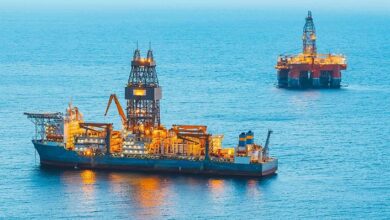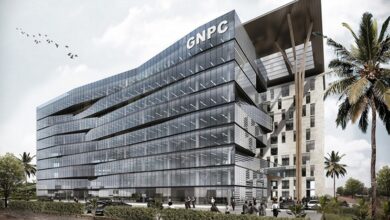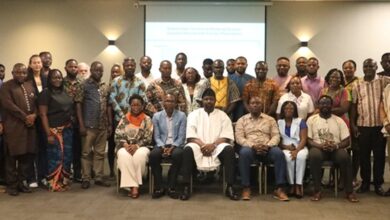World Bank Hails Tema Solar Plant as Model for Sustainable Industrial Growth
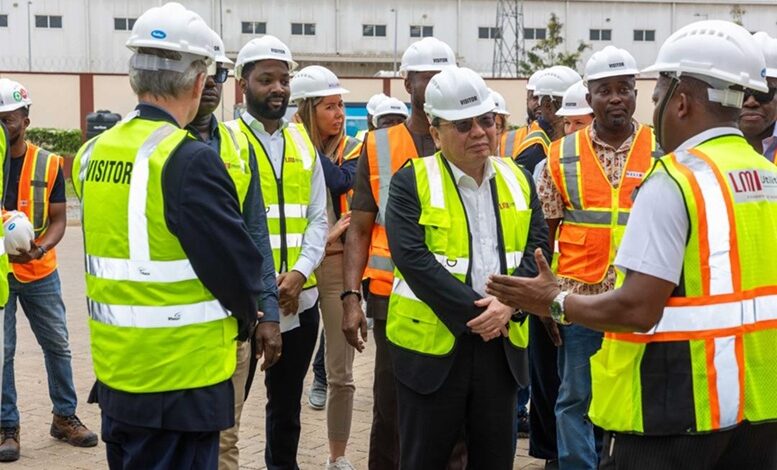
Managing Director and Chief Administrative Officer of the World Bank Group, Wencai Zhang, has lauded Ghana’s 16.82-megawatt rooftop solar project in Tema as a flagship example of sustainable infrastructure and a blueprint for Africa’s green industrial future.
Speaking during a site visit, Mr. Zhang said the solar plant, developed by LMI Holdings in partnership with the International Finance Corporation (IFC), underscores the power of strategic public-private partnerships in delivering cost-effective, climate-resilient energy for industry.
“This rooftop project will reduce energy costs, enhance competitiveness, and significantly cut carbon emissions,” he said. “It demonstrates how strong partnerships can deliver results aligned with Ghana’s industrialization goals.”
Commissioned in July 2024, the Tema Free Zone-based project is the largest single rooftop solar installation in Africa and is already supplying clean power to export-oriented industries within the enclave. The facility marks a major milestone for Ghana’s energy transition efforts and has caught the attention of policymakers for its replicable value-for-money model.
Ghana’s Minister for Energy, John Abdulai Jinapor, expressed deep admiration for the project, noting that it stands out against previous solar deals inherited by the government that were far less cost-efficient.
“I’m tempted to believe there’s high value for money here,” he said. “I’ve seen solar projects whose costs frighten me. This one gives us something to learn from and replicate.”
The Minister emphasized the need to extend the LMI model across other regions to address Ghana’s commercial energy losses, which currently hover around 40% at the national level.
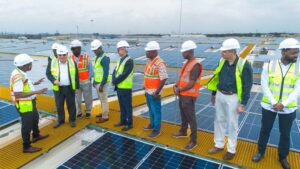
“Your commercial losses are virtually zero, while ours are rising. I’m not saying I’ll hand over Tema, but can we replicate this model across the city to solve those losses?” he asked.
He also revealed ongoing collaboration with the World Bank and IFC to strengthen the Private Sector Participation (PSP) programme in electricity distribution and to support the development of a second gas processing plant to reinforce Ghana’s energy infrastructure.
LMI Holdings Managing Director, Adlai Opoku Boamah, highlighted the project’s role in supporting the green transition of export-driven companies and disclosed that the IFC has committed $100 million toward expanding renewable capacity. A new 100MW project is already underway in Dawa, with plans to reach 1,000MW by 2030.
As part of wider government efforts, Mr. Jinapor announced the creation of a Renewable Energy Authority and the establishment of a Renewable Energy Investment Fund to channel part of Ghana’s fossil fuel revenues into clean energy solutions.
“We’re also planning to roll out solar-powered streetlights to reduce night-time energy consumption and help flatten ECG’s peak load,” he said.
Meanwhile, LMI is also pushing forward on the water infrastructure front, with Ghana’s first commercial-scale utility water treatment plant nearing completion in Dawa. The plant will draw from the Volta River to supply reliable water to industries along the Tema-Dawa corridor.
The Minister, who postponed an official trip to attend the ceremony, reiterated the government’s commitment to working closely with the private sector.
“Government alone cannot meet our energy needs. We must leverage the private sector,” he stated. “And what gladdens me is that you don’t come demanding capacity charges—this is the model we want.”
The commissioning of the rooftop solar plant signals not just an engineering achievement but a shift in policy thinking—anchoring Ghana’s industrial development to cleaner, smarter energy partnerships.

